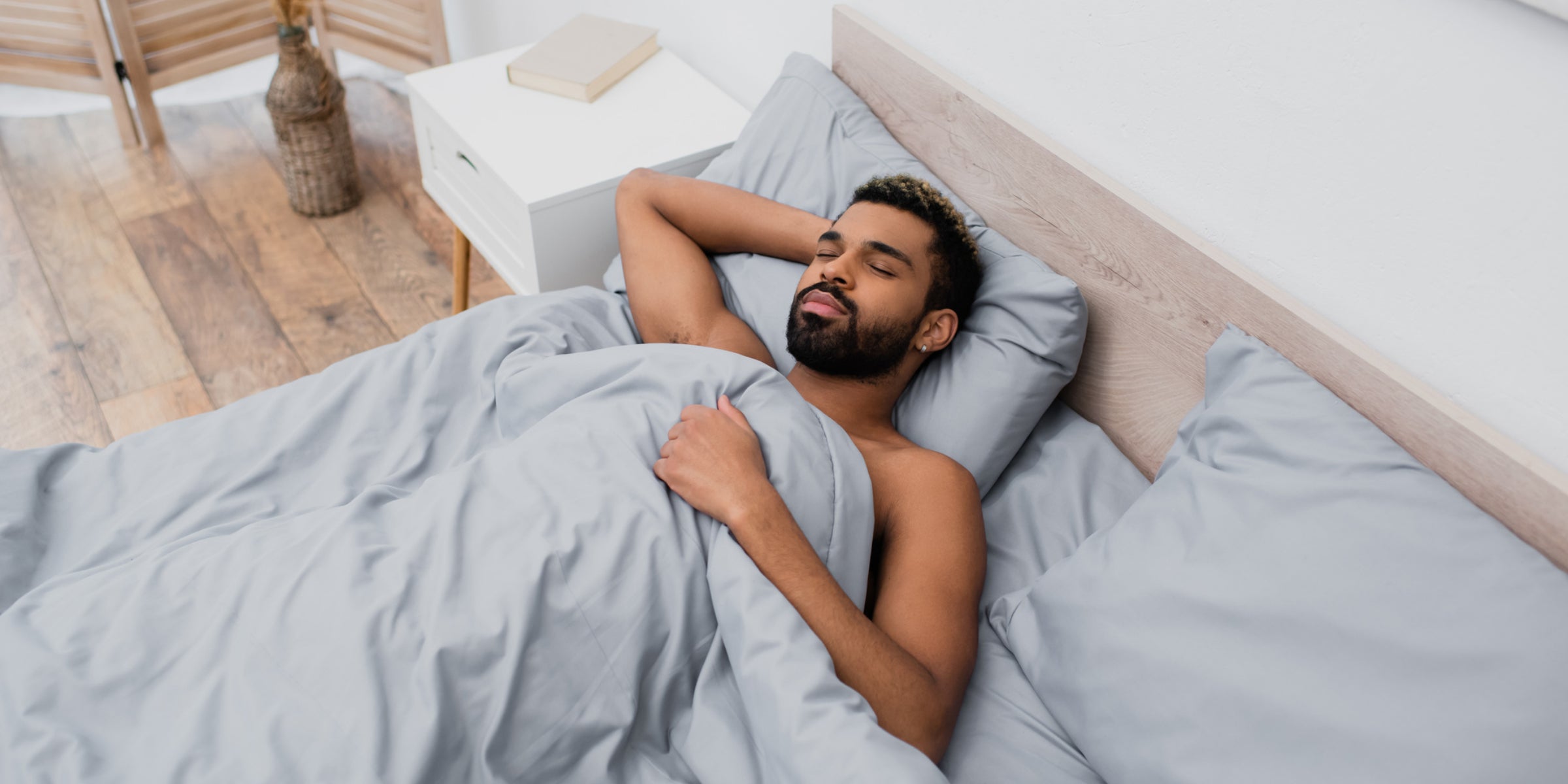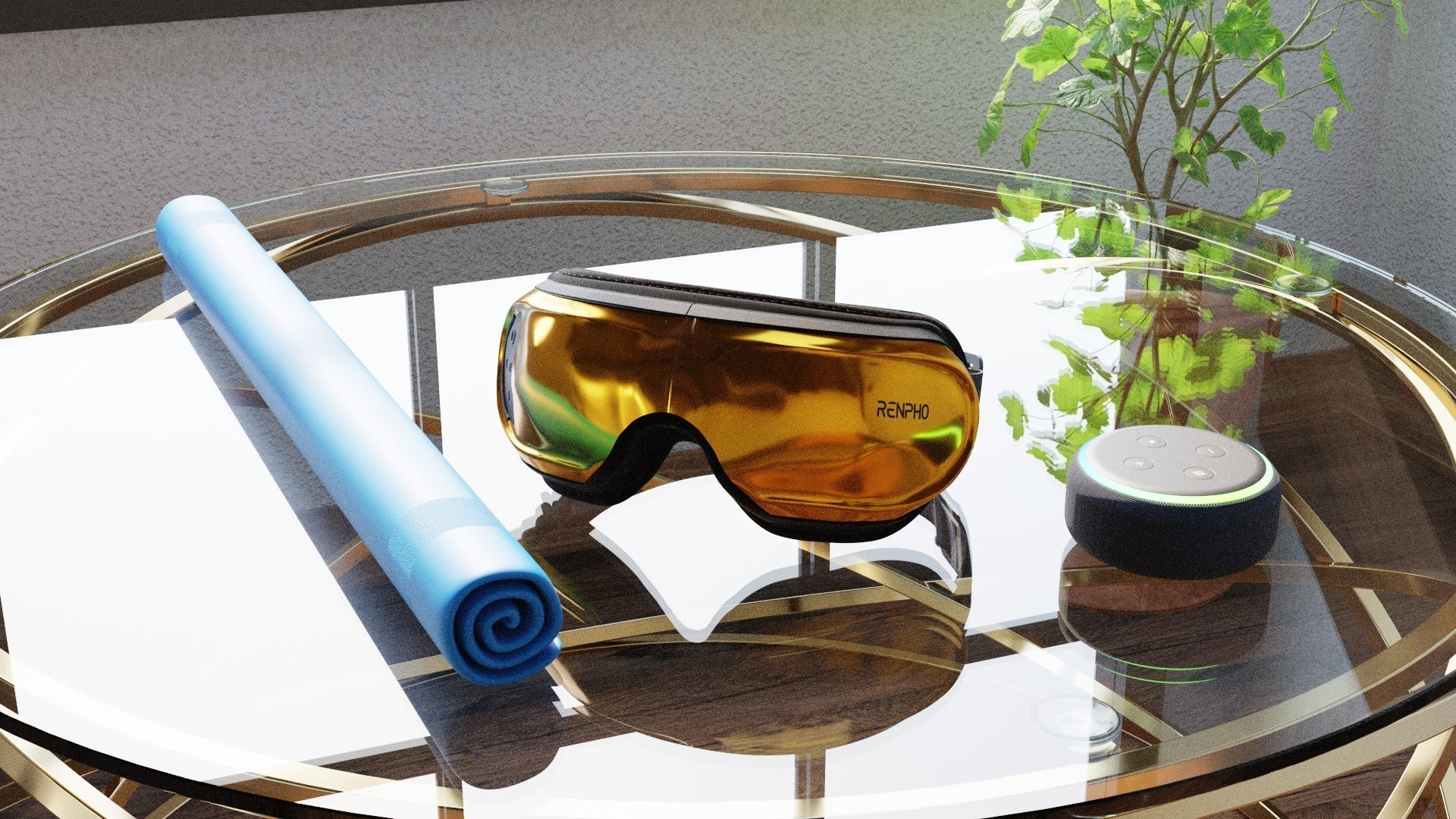The world is moving faster than ever. With information being more accessible each day, it is inevitable for stress and fatigue to become an integral part of our lives. Therefore, finding effective ways to relax and rejuvenate is crucial.
One such popular method is the use of eye masks, which have gained significant attention for their potential benefits in promoting relaxation and improving overall well-being. Whether you're struggling with sleep issues, dealing with puffy eyes, or simply seeking a moment of tranquility amidst a hectic schedule, eye masks may provide the much-needed relief you're looking for. In this article, we will delve into five key benefits that make them worth considering. So, if you're curious about the potential advantages of incorporating eye masks into your self-care routine, continue to discover the transformative effects they can have on your physical and mental health.
Why is Sleep Important?
First things first, quality sleep is essential for maintaining overall health and well-being. Aside from allowing the body to rest and recover, it also significantly impacts cognitive function, relief from headaches and migraines, and overall energy levels.
Cognition is greatly affected by the quality of sleep. Adequate sleep enhances problem-solving skills and promotes memory consolidation, allowing for better cognitive performance. Additionally, quality sleep can help reduce the frequency and severity of headaches and migraines, leading to better overall well-being.
Furthermore, quality sleep directly impacts energy levels. With enough rest, our bodies can restore energy levels, leading to improved alertness and productivity throughout the day.
On the other hand, interrupted sleep, as seen in conditions like obstructive sleep apnea, can hurt cognitive function and overall well-being. This can result in decreased cognitive performance, increased irritability, and a higher risk of accidents due to drowsiness.
Understanding Sleep
Sleep is a fundamental aspect of human life, yet many of us struggle to fully understand its importance and impact on our overall health and well-being. Therefore, we will explore how sleep plays an essential role in our physical and mental health. From uncovering the different stages of sleep to the factors that can disrupt our rest, we will delve into the complex and fascinating world of sleep. By gaining a better understanding of sleep, we can ultimately make informed decisions to prioritize and improve our sleep habits for a healthier and more balanced life. So, let's dive into the world of sleep and uncover the mysteries behind this vital physiological process.
Sleep Cycles and Stages
Sleep cycles consist of four stages: NREM (non-rapid eye movement) stages 1, 2, and 3, and REM (rapid eye movement) sleep. During NREM stages, the body relaxes, muscles unwind, and the brain begins to slow down. Stage 3 is the deepest sleep, where the body repairs and regenerates tissues. REM sleep, on the other hand, is when the brain becomes more active, and dreams occur. This stage is crucial for memory consolidation and learning, as it helps the brain process and store information from the day.
Sleeping eye masks can help improve REM sleep by providing complete darkness, which is essential for triggering the body's production of melatonin, the hormone that regulates sleep. This darkness minimizes interruptions and ensures that the brain can fully engage in the REM stage, leading to enhanced memory and learning abilities.
Circadian Rhythm and How It Affects Sleep Quality
Did you know? The circadian rhythm is the body's internal clock that regulates various bodily processes, including sleep and cognition. This rhythm is influenced by external factors such as light and darkness, and plays a crucial role in determining sleep quality. When it is functioning properly, it helps to promote restful and rejuvenating sleep, which is essential for overall health and cognitive functions.
Disruptions to the circadian rhythm, such as exposure to light at night, can negatively impact sleep quality and important bodily processes. This can lead to memory problems, decreased alertness, and difficulty concentrating. The body's ability to regulate essential functions such as metabolism and hormone production can also be affected by disruptions to the circadian rhythm.
On the other hand, a good night's sleep has numerous benefits for cognitive functions and overall health. It can improve memory, enhance creativity, and boost problem-solving skills. Additionally, proper sleep is essential for maintaining a healthy immune system, regulating mood, and reducing the risk of chronic diseases.
REM Sleep and Its Role in Restorative Sleep
REM (rapid eye movement) sleep plays a crucial role in restorative sleep by stimulating the areas of the brain associated with learning and memory. In addition to its role in cognitive function, it is also important for overall sleep quality and hormonal balance. It is during this stage that the body repairs and restores itself, and disruptions have been linked to mood disorders and impaired cognitive function.
Fortunately, sleep masks can contribute to increased REM sleep by providing total darkness and minimizing external disturbances. By blocking out light and distractions, sleep masks create an optimal environment for deep and restorative sleep, allowing the brain to enter and maintain the crucial REM stage more effectively.
The Role of Ambient Light in Sleep Quality
The role of ambient light is crucial to sleep quality, as it directly impacts our circadian rhythms and the production of melatonin, the hormone that regulates our sleep and wake cycles. Understanding how ambient light affects our ability to fall asleep and stay asleep is essential for creating a sleep-friendly environment.
How Ambient Light Affects Our Internal Clock
Exposure to natural light during the day helps to synchronize our internal clock, promoting alertness and maintaining a healthy sleep schedule. However, excessive or unnatural exposure to light at night can disrupt the circadian rhythm, leading to poor sleep quality, decreased memory function, and reduced alertness.
When exposed to light at night, especially from electronic devices, the body's production of melatonin, a hormone that regulates sleep, is suppressed. This disruption in melatonin production can lead to difficulty falling asleep and staying asleep, ultimately impacting overall sleep quality. Additionally, the disruption in the circadian rhythm can affect cognitive function, such as memory, attention, and overall alertness.
To improve sleep quality and cognitive function, it is important to block out ambient light during bedtime hours. This can be achieved by using blackout curtains, wearing an eye mask, or dimming electronic devices. By creating a dark and peaceful sleep environment, the body's internal clock can better regulate the sleep-wake cycle, leading to improved overall cognitive function and well-being.
Harmful Effects of Artificial Light on Sleep Patterns
Unlike ambient light, artificial light has been shown to have harmful effects on sleep patterns in numerous ways. One of the most prominent ways is through the disruption of circadian rhythms. The body's internal clock, which regulates the sleep-wake cycle, can be thrown off by exposure to artificial light at night, leading to difficulty falling asleep and staying asleep.
Furthermore, studies have indicated that exposure to artificial light during the night can impact memory and alertness. Research has shown that excessive exposure to artificial light, especially blue light, can interfere with the brain's ability to consolidate memories and can impair cognitive function and alertness.
Moreover, artificial light has been linked to reduced overall sleep quality. Inadequate or disrupted sleep due to exposure can lead to a host of negative health effects, including increased risk of obesity, diabetes, and cardiovascular disease.
Why Block Out Ambient Light with an Eye Mask?
Using an eye mask to block out ambient light offers various benefits, including improved sleep quality and skin protection. By eliminating external light sources, it helps promote deeper and uninterrupted sleep, leading to enhanced overall well-being.
Using one at home creates a peaceful and comfortable environment for quality rest. In hotel rooms, where ambient light can be unpredictable and disruptive, an eye mask helps maintain a consistent sleeping atmosphere. Similarly, on airplanes, it allows travelers to block out glaring lights and disturbances, facilitating relaxation and sleep during long flights.
Moreover, wearing an eye mask prevents skin damage from friction caused by rubbing against pillowcases or bedsheets during sleep. This helps protect delicate facial skin and contributes to overall skin health and appearance. By reducing exposure to ambient light, an eye mask also minimizes the risk of premature aging, uneven skin tone, and other skin concerns related to light-induced skin damage.
4 Benefits of Using Eye Masks for Better Sleep
Do you struggle with getting a good night's sleep? Have you considered using an eye mask like the RENPHO EyeSnooze Aroma to help improve your quality of sleep? They are a popular sleep aid that can provide a range of benefits to help you achieve a better night's rest. From blocking out light to promoting relaxation, let's explore the various benefits of using eye masks for better sleep.
-
Improves Comfort and Relaxation During Sleep

Eye masks are effective in improving comfort and relaxation during sleep for several reasons. Firstly, they block out external light sources, creating a dark environment that signals to the brain that it's time to sleep, resulting in deeper and more restful slumber. Additionally, eye masks apply gentle pressure around the eyes, helping to relax the eye muscles and alleviate strain and tension, especially for those who spend long hours in front of screens or under bright lights. By blocking out light, eye masks also promote the natural production of melatonin, the hormone responsible for regulating sleep-wake cycles, leading to a faster onset of sleep and better overall sleep quality. Furthermore, eye masks minimize distractions, such as partner reading lights or streetlights, allowing individuals to focus solely on relaxation and sleep.
Finally, incorporating an eye mask into a bedtime routine establishes a visual cue that triggers the mind and body to prepare for sleep, creating a powerful association between the mask and a state of relaxation. Overall, eye masks provide a comfortable and conducive environment for restful sleep, contributing to improved well-being.
-
Reduces Dark Circles and Puffiness

Eye masks are a great way to reduce the appearance of dark circles and puffiness around the eyes. To use one for this purpose, apply a weighted or cooling eye mask to the under-eye area. This will help to remove excess fluid and constrict blood vessels, which in turn helps to reduce puffiness and improve dark circles.
For targeted relief, you can also use hot or cold therapy with an eye mask. If you want to ease tension and soothe the entire eye area, you can opt to microwave the eye mask for a warm treatment or place it in the fridge or freezer for a cold treatment. The heat or cold from the eye mask can help to improve circulation and reduce swelling, providing relief for tired and puffy eyes.
Using eye masks with targeted relief is a simple yet effective way to reduce the appearance of dark circles and puffiness around the eyes. With regular use, you can enjoy a refreshed and rejuvenated eye area. So, grab your eye mask and give it a try today!
-
Enhances the Melatonin Production

Wearing a sleep mask enhances the production of melatonin, the hormone that regulates sleep, by blocking out any light that may interfere with its production. Melatonin is naturally produced by the body in response to darkness, signaling that it is time to sleep. By wearing a sleep mask, you are creating a darker environment, which signals the body to produce more melatonin, leading to deeper and more restful sleep.
Exposure to light, especially blue light from electronic devices, can suppress the production of melatonin, disrupting the sleep-wake cycle. Wearing a sleep mask can help regulate the sleep-wake cycle by minimizing light exposure, allowing for the natural production of melatonin to occur.
-
Calms the Mind and Body

Weighted eye masks offer gentle pressure that aids in calming the mind and body through deep pressure stimulation. This pressure has a relaxing effect on the nervous system, promoting a sense of calm and reducing anxiety and stress. The weighted nature of the eye mask provides a comforting sensation, similar to the feeling of a hug, which can help to soothe both the mind and body.
Additionally, the gentle pressure from weighted eye masks can also reduce friction on the skin, promoting a smoother and more comfortable experience. This is particularly beneficial for those with sensitive skin or those prone to irritation.
Furthermore, the gentle pressure can potentially aid in reducing eye puffiness, as the slight compression can help to improve circulation and reduce fluid retention. It may also help alleviate headache pain by providing gentle support and reducing tension around the eyes and forehead.
Takeaway
Using an eye mask can improve sleep by blocking out unwanted light, promoting comfort, reducing dark circles, enhancing melatonin production, and calming the mind and body. The mask creates a dark environment, allowing you to fall asleep more easily. The gentle pressure of the mask provides physical relaxation and relieves eye strain. By blocking light, it can help reduce the appearance of dark circles and puffiness under the eyes. The darkness created by the eye mask stimulates the production of melatonin, a hormone that regulates sleep. Lastly, the act of wearing an eye mask serves as a visual cue for relaxation, helping to calm the mind and prepare for a restful sleep. So, if you're struggling with sleep difficulties or simply seeking a way to enhance your sleep experience, consider trying an eye mask and experience the transformative effects it can have on your well-being.
Renpho Health Tips
-

The Art of Napping: The Transformative Effects of Napping and Power Naps
December 21, 2023
Read more >
-

Finding Stillness in Motion: How Running Helps Me Connect with Myself
December 18, 2023
Read more >
-

The Amazing Benefits of Sauna and Steam for Your Body and Mind
December 10, 2023
Read more >
-

How Restorative Yoga and Stretching Can Help You Relax and Recover
December 10, 2023
Read more >
-

Beginner’s Guide on Open Eye Meditation
December 7, 2023
Read more >




































